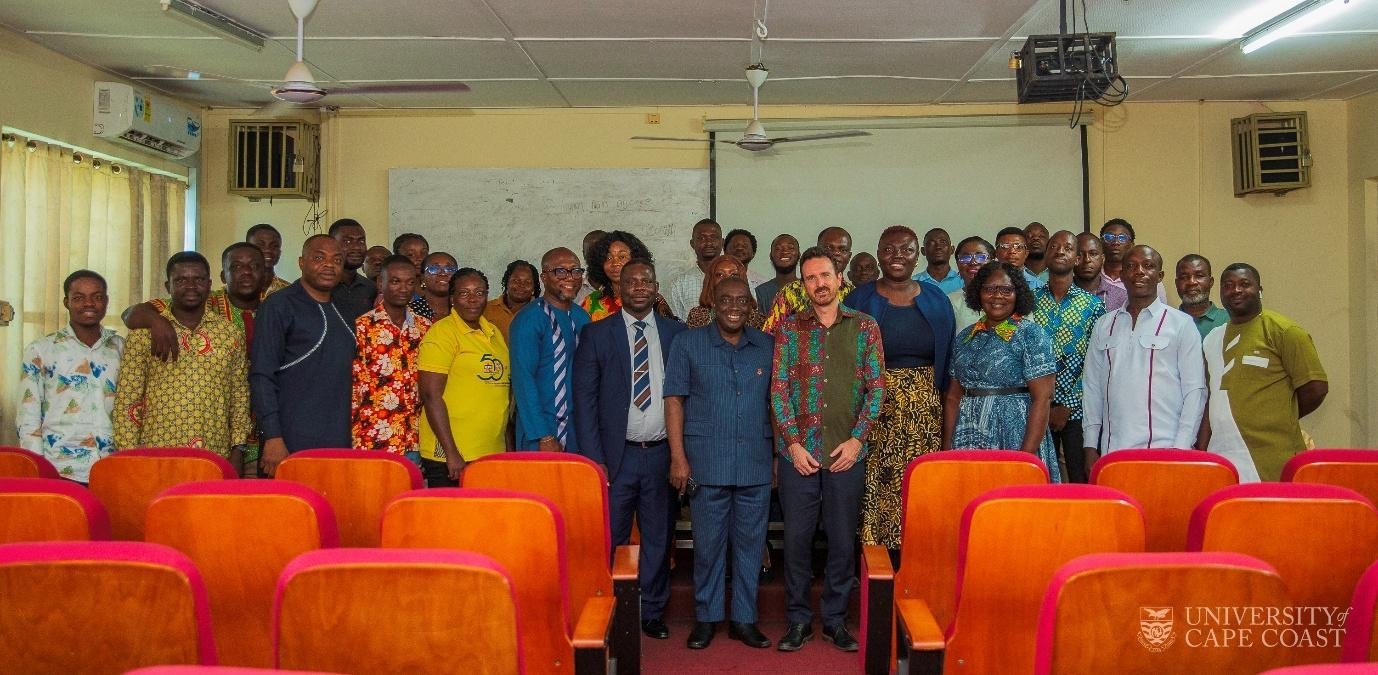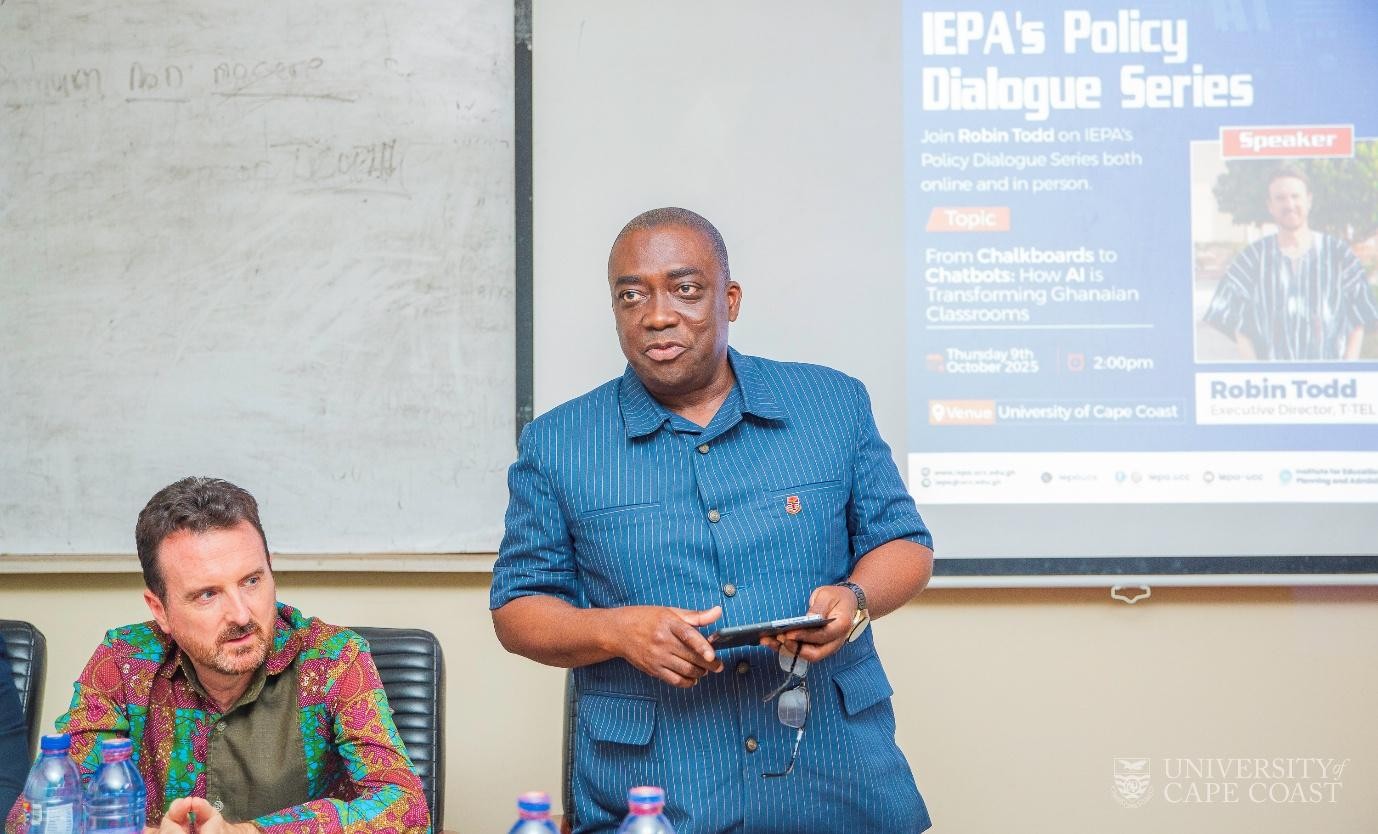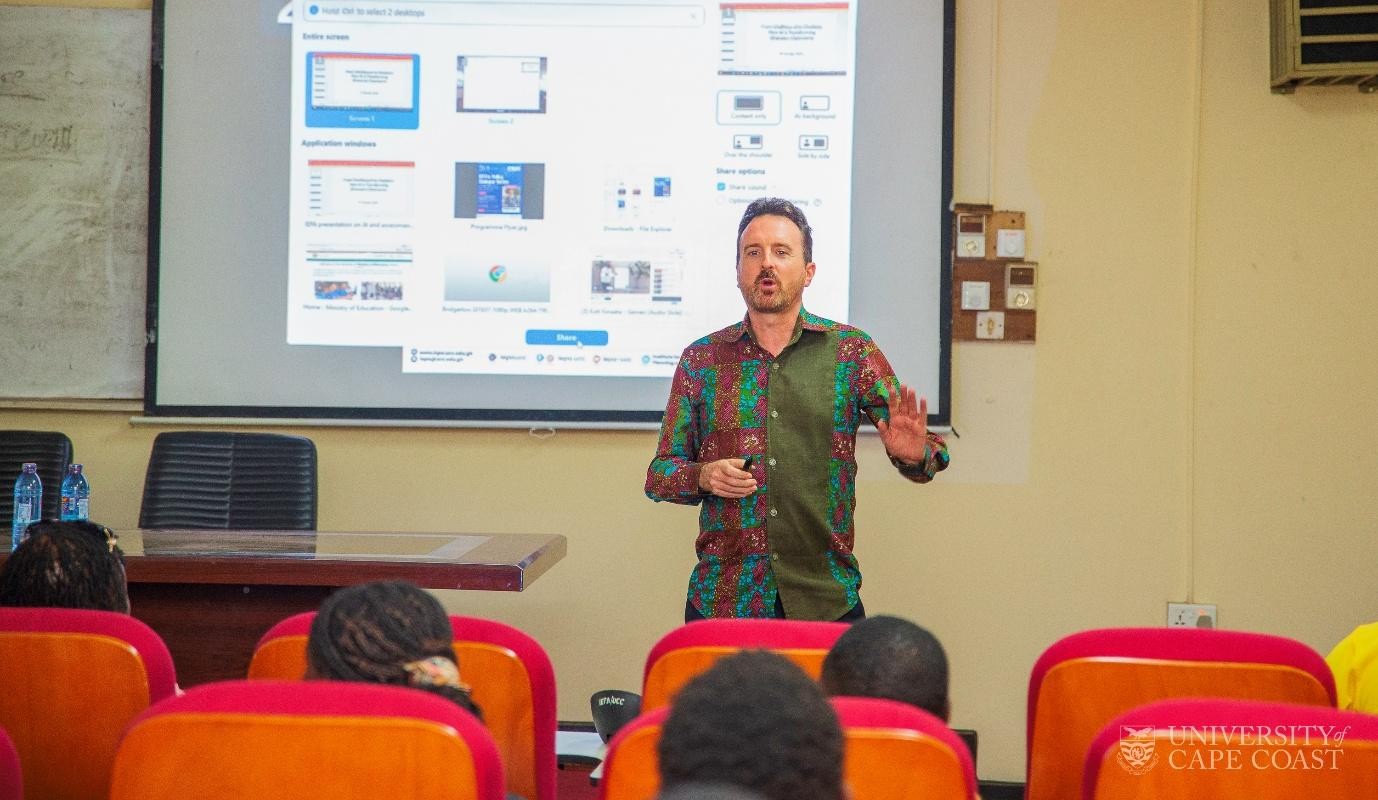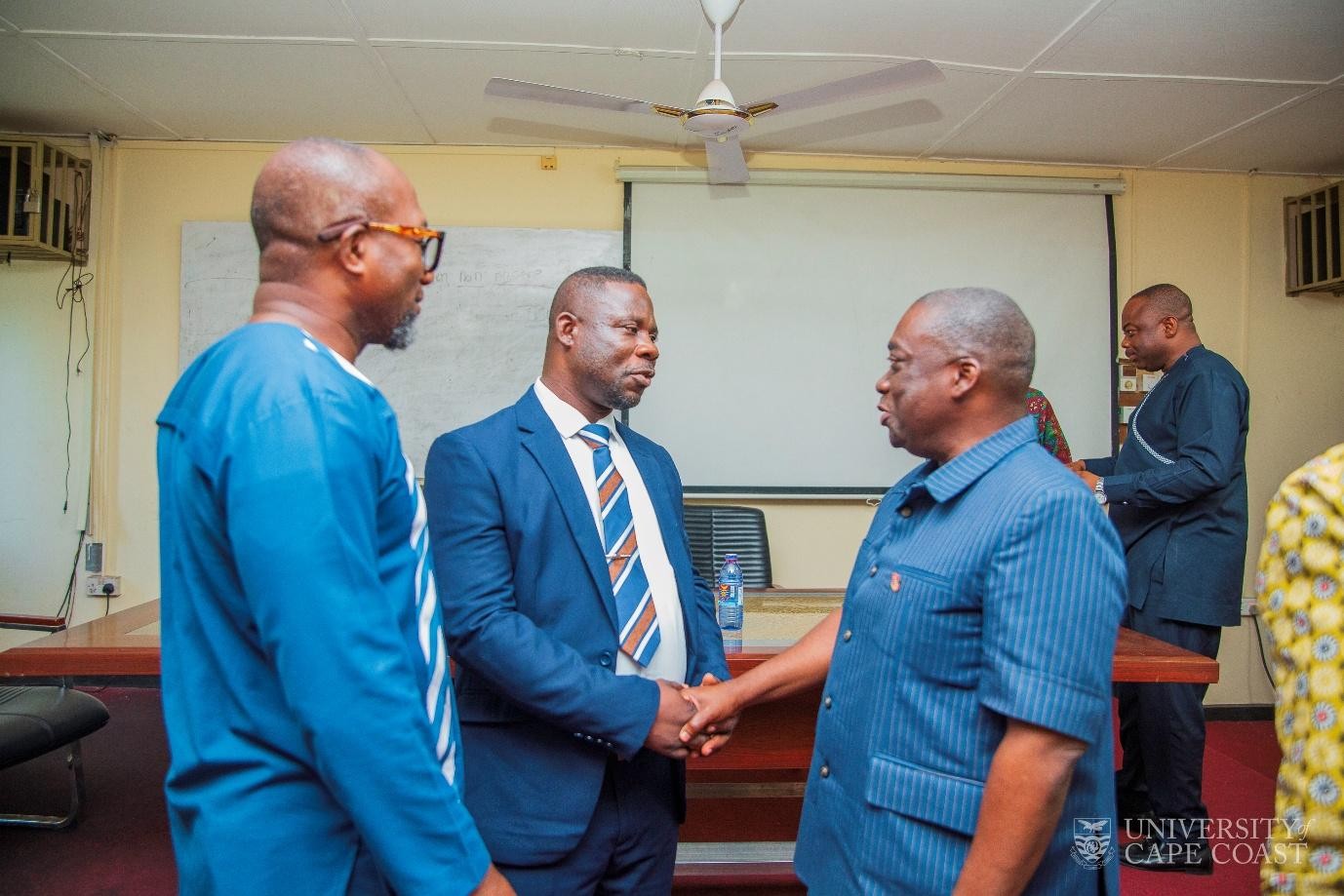The Institute of Educational Planning and Administration (IEPA), UNESCO Category II Centre of the University of Cape Coast (UCC), has long recognised the potential of Artificial Intelligence (AI) to address Ghana’s educational challenges and promote equitable learning.
As a result, it has held a Policy Dialogue Series under the theme “From Chalkboards to Chatbots: How AI is Transforming Ghanaian Classrooms.”
The event formed part of a collaborative initiative between IEPA, the National Council for Curriculum and Assessment (NaCCA), and Transforming Teaching, Education and Learning (T-TEL), aimed at exploring the transformative role of Artificial Intelligence (AI) in education.
Opening the session, the Director-General of IEPA, Prof. Michael Boakye Yiadom, emphasised the importance of partnerships between research institutions and implementing agencies, He therefore called for collaboration between IEPA and NaCCA to document, evaluate, and refine Ghana’s AI in Education Blueprint, which could potentially serve as a model for other nations.
Further emphasising the inevitability of AI in education, the Director General said, “AI is now part of us, and so we cannot help but use it.
There are ethical issues that need to be tackled, but it does not stop us from using it.”
Director-General of IEPA, Prof. Boakye Yiadom
Delivering the keynote address, the Executive Director of T-TEL, Mr. Robin Todd, described the development of PlayLab AI for SHS teachers as a significant step forward because it considered inputs from professors and SHS teachers in curriculum design.
“For the first time, we had professors and SHS teachers coming together to write the curriculum; this is a big shift in approach,” he noted.
Mr. Todd further explained that NaCCA staff had received training on developing AI-driven applications to support curriculum development, assessment, and instructional materials.
The process of developing the application, he said, followed four phases: ‘technical accuracy review, educational quality review, user experience review, and regional testing.”
He noted that the app was designed specifically for SHS teachers in Ghana and added, “AI is more likely to be effective if integrated within existing professional learning structures and routines to encourage regular usage.”
Executive Director of T-TEL, Robin Todd
In his remarks, Mr. Eric Amoah, Deputy Director of NaCCA, described the ongoing changes in education as a major step in Ghana’s educational transformation.
“Today, we stand at the threshold of another transformation. It is ethically grounded and culturally significant,” he affirmed.
The subject-specific apps were developed collaboratively by the
Transforming Teaching, Education and Learning (T-TEL), the National Council for Curriculum and Assessment (NaCCA), and funding from the Mastercard Foundation, in partnership with PlayLab AI.
The apps are intended to help teachers prepare lessons, design assessments, and share best practices, while maintaining consistency with national education standards.
He emphasised that the introduction of AI in education would remain locally led, ethically grounded, and centred on empowering teachers.
Deputy Director of NaCCA, Mr. Eric Amoah (M), in a handshake with the DG of IEPA, Prof. Boakye Yiadom. With them is a Deputy DG of IEPA, Prof. Alfred Ampah-Mensah
Source: Documentation and Information Section-UCC




